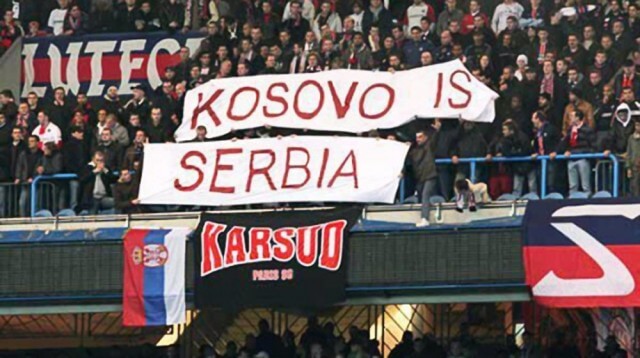In order to solve the problems in Kosovo, as it suits it, Serbia has tried almost everything, including military force. It is possible that a lot of time has passed since then, a little more than 20 years, so it has been forgotten, and young generations do not remember those days. They have an idea about it from others, older people, and that idea is often insincere and distorted, so we should stop and think again before we scold the 20-year-olds, and even the 30-year-olds who lightly say that Kosovo should be “liberated” by force. If they really think so, it is not their original belief, they learned it from the elders. From those who had the opportunity to “liberate” Kosovo by force, but lost that fight. So, today, they hypocritically and cowardly ask their successors to fight their lost battles.
Only a seemingly worrying result from a survey by the Belgrade Center for Security Policy, according to which more than half of citizens (52%) believe that Serbia should intervene militantly in the event of a conflict in Kosovo, and almost half (47%) would personally participate. We say – “seemingly worrying”, because the following data shows that the reasoning of our citizens is much more mature, because almost everyone, as many as 70%, believe that there will be no armed conflicts in the Balkans. Hence, it is possible to conclude that such a great readiness to go to Kosovo armed actually comes from the belief that it will not be necessary, that it is a typical verbal heroism, behind which there is no real belligerence.
However, why is there still such a great, even “tavern” readiness to go to Kosovo, when it has been more than clear for two decades that this is not a realistic option. It should be recalled, for who knows which time, that Serbia, by signing the Military-Technical Agreement from Kumanovo in 1999, accepted the reality that its army and police will not return to Kosovo. That this is possible only with the permission of the commander of KFOR, a mission conducted by NATO on behalf of the United Nations. Even if it were possible, it would apply to “up to a thousand personnel” who would have strictly defined, non-combat tasks, therefore not – soldiers, police officers. It should obviously be remembered that no government in Belgrade, from 1999 until today, has asked the KFOR commander to return the Serbian “personnel” to Kosovo.
And why a certain, and obviously not a small number of our citizens still think that a military option for Kosovo is possible, the answer should not be sought in the distant past. It is enough to look at the recent headlines in the Belgrade newspapers, which are shocked and surprised because of Croatia’s decision to increase its military contingent in Kosovo, as part of KFOR. This “scandal”, as part of the Belgrade press calls it, can really create the impression that this is something new and unprecedented – that Croatian soldiers go where Serbs cannot, to Kosovo, which is an integral part of it according to the Serbian Constitution. The anger and resentment spread by such front pages, not caring about reality, can really provoke a warrior mood in many, and we know very well how it ends from the experience of the 90s. That is why we must remind that the Croatian army has been present in Kosovo since 2009, when it became a member of NATO, and that it is there as part of an international mission, together with all other members of this organization. There is no mystery, no aggression, no occupation. Only the long-term fulfillment of the obligations of one state towards the organization of which it is a full member, and the fact that all this does not fit into our mythical notions, is only our problem. Unfortunately, according to the same myths, KFOR and its members (including Croats) are the most important, if not the only protectors and guarantors of the security of the Serbian community in Kosovo.
Fortunately, Serbia will not even be in a position to resolve the Kosovo issue by military means, a decision was made on that 21 years ago. More importantly, in a process that has been going on for a full decade, Serbian diplomacy led by President Vučić insists on a solution that will be peaceful, compromise and that will last for generations. Perhaps he himself best defined the positions regarding Kosovo, addressing the Albanian audience with the words – “Neither we nor you have children for the war and it is not the time of wars. That’s why we need to understand each other.” And that is why any call for the armed “liberation” of Kosovo, even if it seemed comical due to its incompatibility with reality, does not do a good service to the state of Serbia, and especially to the Serbs in Kosovo. To every battle cry from central Serbia, Serbs in Kosovo have reason to fear the response of equally belligerent Albanians from their neighborhood. This roller coaster of heroism, fear and incident will last until the day when Serbs and Albanians agree on a way in which they will be able to live together in the long run. As much as they are dissatisfied with that agreement, and they will be, it will be the only way to leave behind the days of conflict and anxiety forever and turn to the future.
